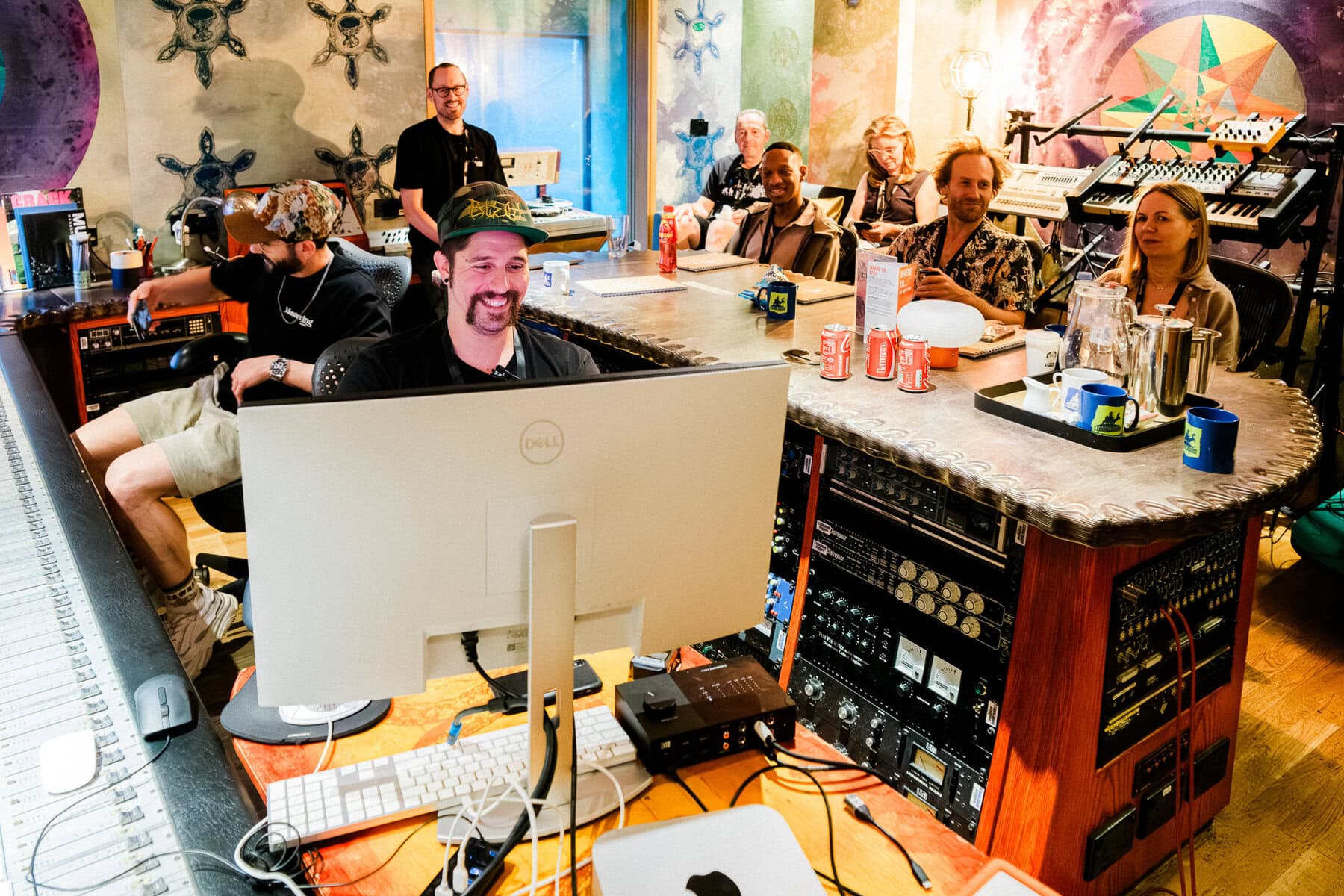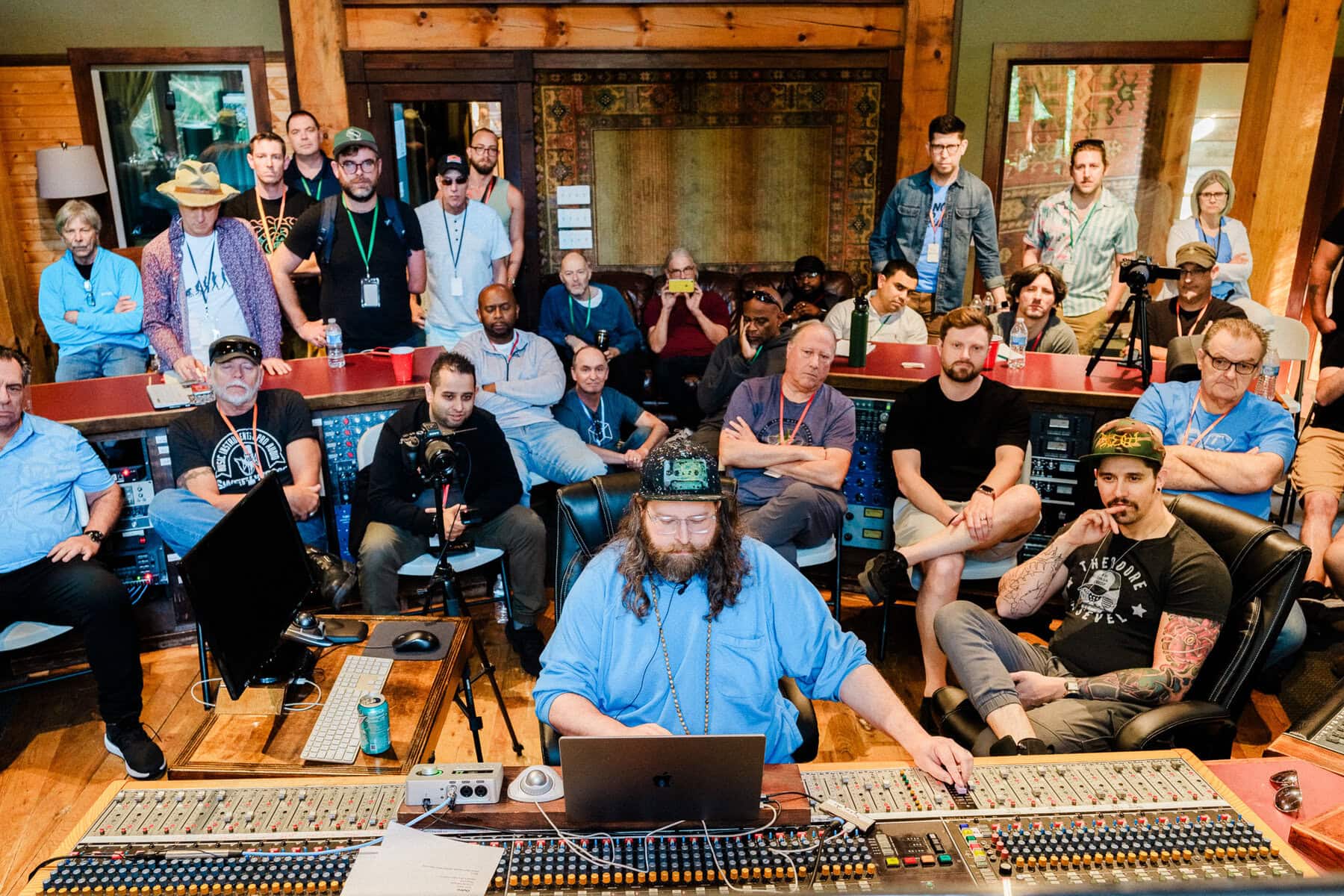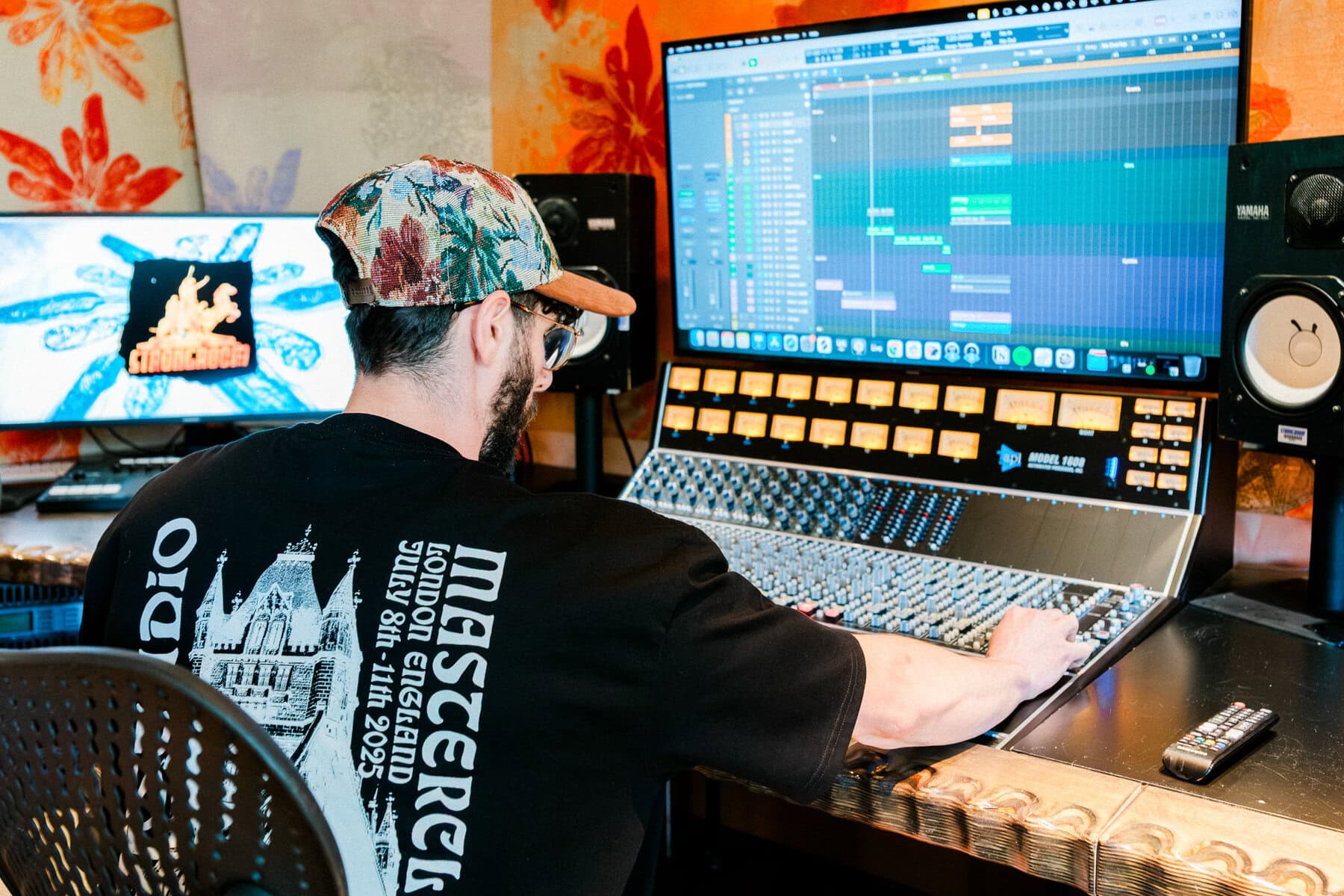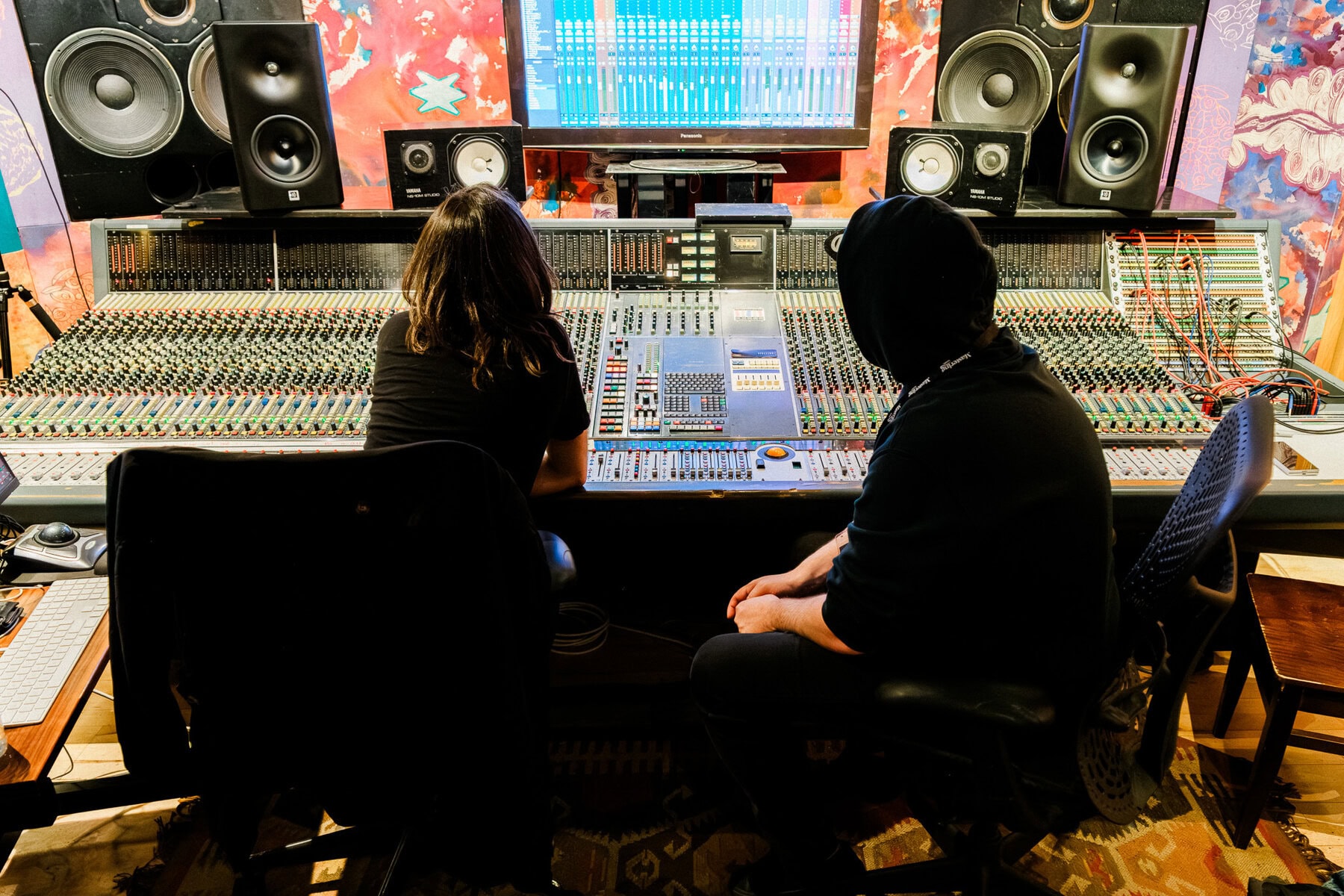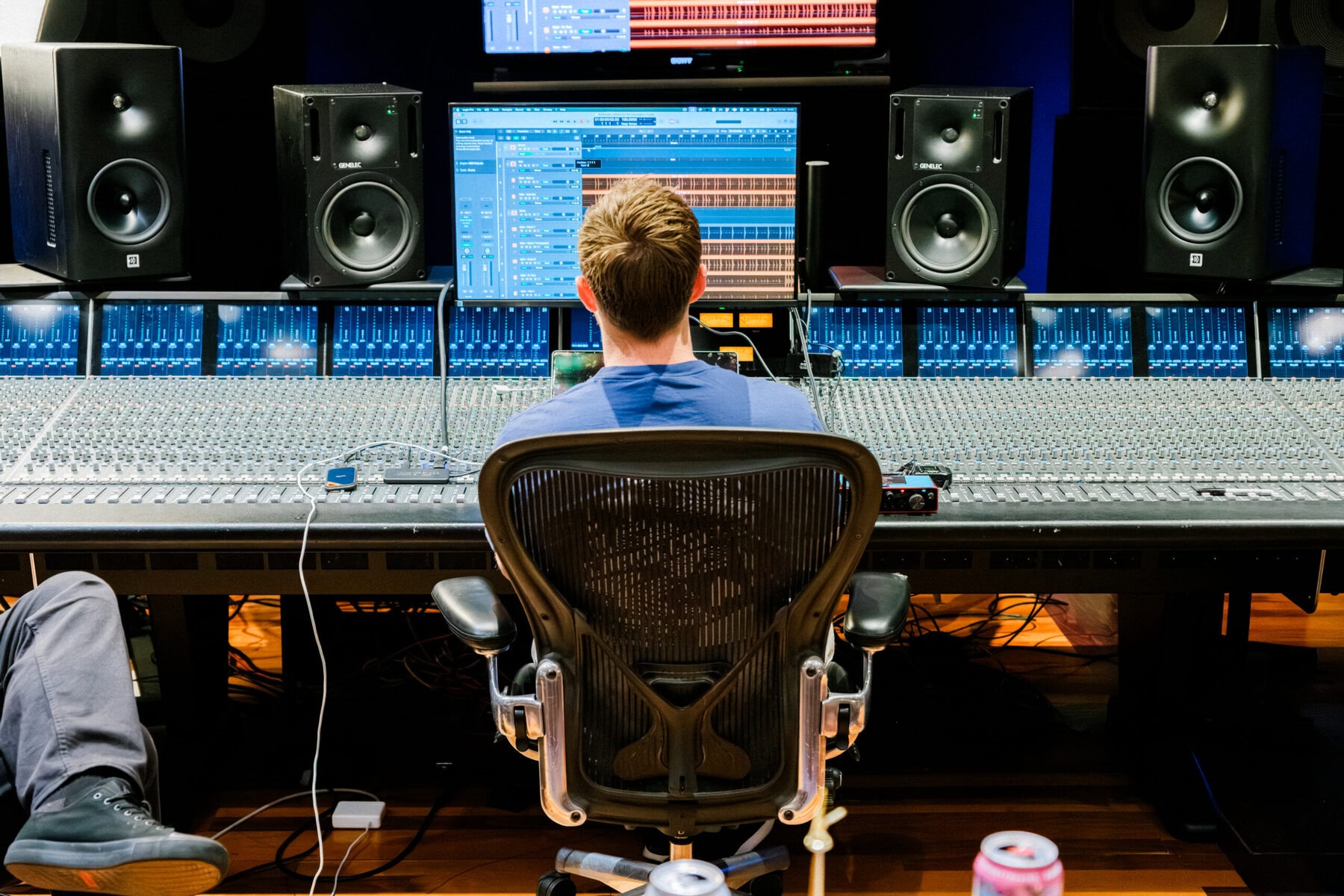Recording and processing vocals in a home studio isn’t easy.
A lot of people go over the top when they EQ vocals.
The key is to keep it subtle.
The human voice is something that we hear every day. We know how it should sound.
As soon as you become heavy handed with EQ, vocals start to sound unnatural and weird.
You have to approach vocal processing with care. In this article, I want to give you 5 tips that will teach you how to EQ vocals with the right mindset.
I’m guessing you’re here because you want to make your mixes sound professional. We put together a brief training that covers a totally new approach to music production. Until now, everyone has been teaching production totally backward. Just click below to watch.Get industry-quality every time (steal this framework)
But if you just want to learn about EQ specifically, keep reading.
The Mix Starts in the Recording Phase
Decide on the sound and tone that you want to achieve before you start recording.
Want a warmer sound? Use a dynamic microphone and get close (2-5 inches).
Want a clear, open sound? Use a large diaphragm condenser and take a step back (5-10 inches).
You can’t change the tone of a vocal recording in the mixing phase.
The sound of the vocal is decided when you record it!
So make sure you spend plenty of time on mic choice, room choice, mic setup, and room treatment.
Now, here are 5 tips for when you EQ vocals.
UPDATE: We released another video that shows shows you how to hear EQ:
Tip #1 – Cut before you boost
This applies to EQ’ing in general.
For example, if you want the vocals to sound warmer, cut the highs (maybe 6-10kHz) rather than boosting the lows.
You should always cut to make something sound better, and boost to make something sound different.
So cut away any odd room resonances, and then cut any elements of the voice that you don’t like (more on that in a second).
Then boost later to give your vocal a slightly different character if that’s what you want to do!
It’s always good practice to apply your cuts before compression and your boosts after.
Tip #2 – Never boost or cut more than 5dB
If you have a tendency to be heavy handed with vocal EQ, this is a great way to keep yourself in check.
This is just a guideline, to keep your vocals sounding natural. Never boost or cut by more than 5dB.
Tip #3 – Cut everything below 50Hz
Most voices are centered between 120-250Hz (depending if you’re male or female).
This means that, in most cases, everything below 50Hz is rumble and noise.
Cut it, and be done with it!
(Unless you have a male vocalist with an extremely low voice.)
Tip #4 – A wide, gentle boost between 2-6kHz can improve clarity
If your vocal recording sounds muffled or a bit too warm, try applying a wide boost of 2-3dB between 2kHz and 6kHz.
Make sure you do this after the compressor though, not before!
On the flip side, if the vocals sound harsh or brittle, try reducing these frequencies.
Tip #5 – Remove the mud
Muddiness is one of the biggest issues in most mixes.
Especially when we have the typical band set up of several guitars and a vocalist.
Most of these instruments are centered around 250-350Hz, so we soon get a build up of frequencies in this area.
Try a cut of 3-5dB around 300Hz (move it around a bit until you find a sweet spot).
This will only work on vocals that already sound full. If the vocal sounds thin, cutting around 300Hz will only make it sound worse!
If you have a muddy mix but the vocals can’t afford to lose anything around 300Hz, cut the other instruments around this frequency instead.
NOTE: Be sure you’re not ignoring this essential EQ knob:
If you want to dig deeper into music production and learn what it actually takes to make mixes that sound pro… And you’re an intermediate or advanced producer… Be sure to check out the free masterclass: Enjoy!Next Steps


